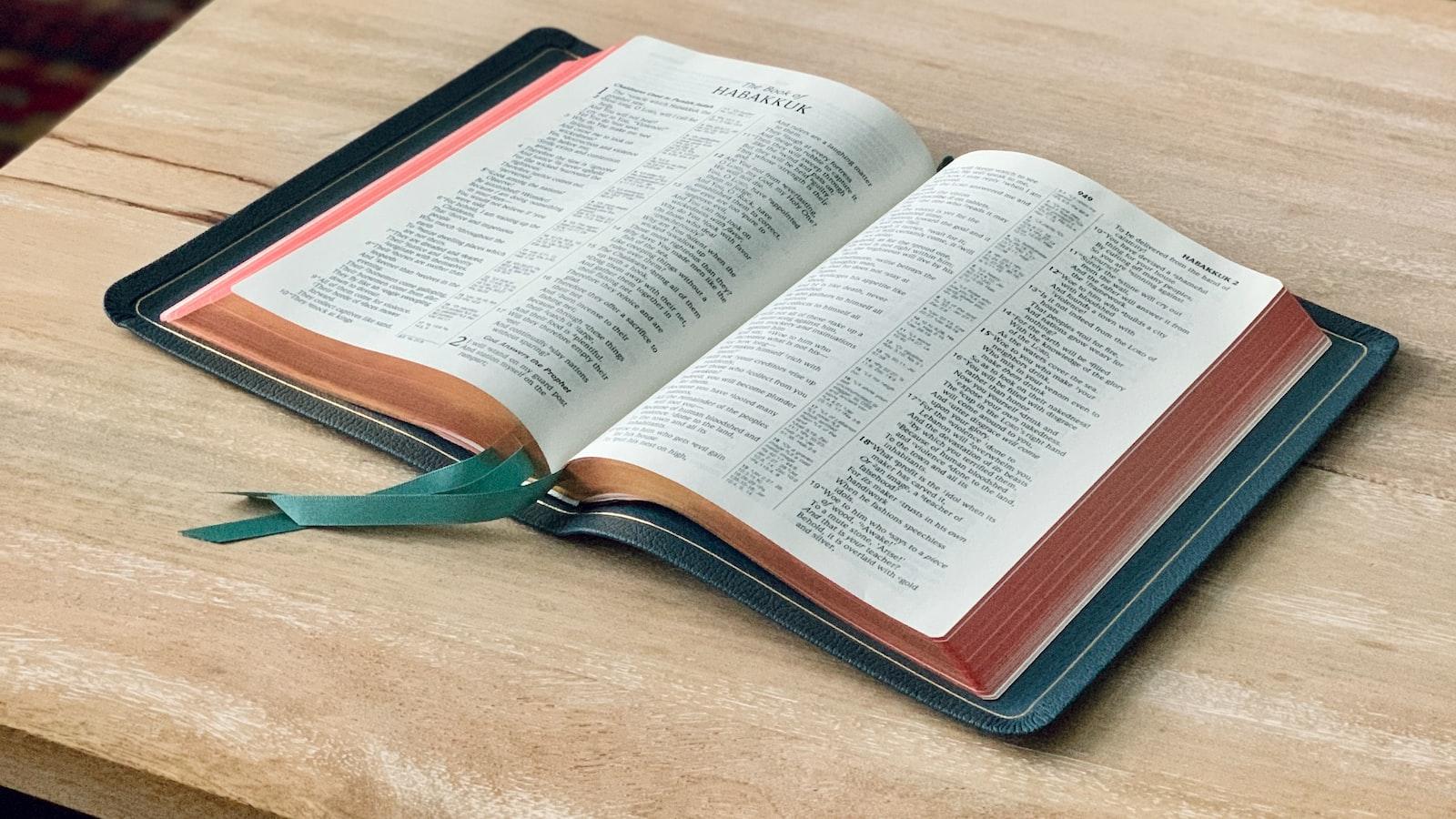Hey there! Ever wondered what the biblical meaning of Moses is? Well, grab a seat and let’s dive into the fascinating world of Moses, one of the most prominent figures in the Bible. In this article, we’ll explore the significance and symbolism behind Moses, shedding light on the lessons and insights we can glean from his incredible life. So, buckle up and get ready for an enlightening journey into the biblical meaning of Moses. Let’s get started!
1. Moses: The Early Life and Divine Calling
Moses is one of the most significant figures in the Bible, revered for his leadership and role in delivering the Israelites from Egyptian slavery. His story begins with his early life and divine calling, which set the stage for his remarkable journey. Born during a time when all Hebrew baby boys were ordered to be killed, Moses was hidden by his mother in a basket and placed in the Nile River. Miraculously, he was discovered and adopted by Pharaoh’s daughter, becoming a member of the Egyptian royal family.
Despite his upbringing in the lap of luxury, Moses’ true identity as a Hebrew was never forgotten. As he grew older, he witnessed the oppression suffered by his people and became increasingly sympathetic towards them. One day, when he saw an Egyptian taskmaster cruelly abusing a Hebrew slave, Moses’ righteous anger ignited within him, leading him to murder the taskmaster. This act forced Moses to flee Egypt in fear for his life. It was during his self-imposed exile in the land of Midian that Moses had a life-changing encounter with God.
In the midst of tending to his father-in-law’s flocks, Moses encountered a burning bush that was not consumed by the flames. Curiosity spurred him on, and as he approached, a voice from within the bush called out to him. It was God himself, revealing his divine presence to Moses. In this awe-inspiring moment, God commissioned Moses to return to Egypt and lead the Israelites out of bondage. This encounter with the divine marked the official beginning of Moses’ calling as a prophet and deliverer.
Moses had several doubts and reservations about his ability to fulfill this divine mission, but God was persistent and reassured him with signs, miracles, and the promise of divine guidance. Reluctantly, Moses embarked on his journey back to Egypt, armed with newfound faith and determination. Little did he know that his life would be forever changed, as he became the instrument through which God would display his power and bring about the liberation of his people.

2. Moses: Leading the Israelites on a Journey to Freedom
In the biblical narrative, Moses is a significant figure, renowned for leading the Israelites on a transformative journey towards freedom. His story holds deep symbolic meaning and offers valuable lessons that resonate with people to this day.
1. **Deliverance from Bondage**: Moses was chosen by God to free the enslaved Israelites from the oppressive rule of Pharaoh in Egypt. This arduous task not only showcases Moses’ unwavering dedication but also represents the universal human desire for liberation from various forms of bondage, be it physical, emotional, or spiritual.
2. **Divine Guidance**: Throughout their journey, Moses was guided by divine intervention, such as the renowned burning bush and the pillar of cloud by day and pillar of fire by night. These miraculous signs symbolize the importance of seeking and acknowledging a higher power that leads and protects us in times of uncertainty.
3. **Leadership and Faith**: Moses exemplifies exemplary leadership qualities, inspiring others with his unwavering faith and commitment. He boldly confronted Pharaoh, parted the Red Sea, and guided the Israelites through the desert for forty years. His actions demonstrate the power of faith in overcoming seemingly insurmountable challenges and inspiring others to follow a righteous path.
| Lesson | Relevance |
|---|---|
| Perseverance | Moses’ journey teaches us to persist in the face of adversity and never lose sight of our goals. |
| Humility | Despite his significant role, Moses remained humble, reminding us to prioritize humility in leadership. |
| Trust in God | Moses’ story highlights the importance of faith and trust in a higher power, even when the path ahead seems uncertain. |
4. **Legacy of Transformation**: Moses’ leadership left an indelible mark on history, leading the Israelites out of slavery and shaping them into a nation. His story serves as a reminder that one individual can catalyze significant change and that through determination, faith, and humility, we can create a more just and compassionate world.

3. Moses: Communicating with God through the Burning Bush
Throughout the Bible, Moses emerges as a central figure, revered for his profound connection with God and his role in leading the Israelites out of Egypt. This remarkable biblical narrative showcases Moses’ communication with God through the awe-inspiring image of the Burning Bush.
Moses, who was tending to his flock in the wilderness, encountered a bush that was on fire but not consumed by the flames. Intrigued by this miraculous sight, he drew near to investigate. As he approached, a voice from within the bush called out to him, introducing Himself as the God of his ancestors, Abraham, Isaac, and Jacob.
At that moment, Moses discovered his divine calling. God entrusted him with the task of demanding Pharaoh to release the Israelites from slavery in Egypt. Despite Moses’ initial hesitation and feelings of inadequacy, God reassured him that He would be by his side throughout the journey.
Moses’ interaction with the Burning Bush serves as a powerful reminder of God’s ability to communicate with humanity through extraordinary means. The unconsumed bush symbolizes the divine presence, representing God’s everlasting nature and His ability to manifest Himself in unexpected ways.

4. Moses: The Ten Commandments and the Legacy of the Law
When discussing the biblical meaning of Moses, one cannot ignore his significant role in delivering the Ten Commandments and establishing the legacy of divine law. Moses, a central figure in the Old Testament, was chosen by God to lead the Israelites out of slavery in Egypt and guide them to the Promised Land. Through his encounters with God and his subsequent actions, Moses played a pivotal role in shaping the moral and ethical framework for generations to come.
The Ten Commandments, also known as the Decalogue, were given to Moses by God on Mount Sinai. This set of moral and religious principles serves as the foundation of ethical behavior in the Judeo-Christian tradition. They were not only meant for the Israelites but are considered universal principles of righteousness applicable to all humanity. The Ten Commandments address various aspects of human conduct, emphasizing the importance of honoring God, respecting others, and fostering personal integrity.
Moses’ dedication to upholding the law had a profound impact on the Israelites and their subsequent generations. He established a system of judges and leaders to ensure the fair enforcement of the laws. Moses’ legacy extended beyond the Ten Commandments, as he received additional laws and ordinances from God, known as the Mosaic Law. These laws covered a wide range of subjects, including social justice, dietary restrictions, and religious rituals.
The biblical account of Moses showcases not only his role as a lawgiver but also his unwavering faith and commitment to his people. Despite facing numerous challenges and setbacks, Moses persisted in leading the Israelites towards their promised inheritance. His story serves as an inspiring reminder that obedience to God’s commands and adherence to moral principles can bring about liberation, guidance, and spiritual transformation.
So there you have it—the fascinating journey through the biblical meaning of Moses. We’ve dug deep into the historical accounts and examined the symbolism behind his name, his role as a leader, and the impact he still has on faith and morality today. Whether you view Moses as a historical figure, a prophet, or a symbol of liberation, one thing remains clear: his story is one that continues to captivate millions around the world.
From his humble beginnings in the Nile River to his epic encounters with Pharaoh and the miracles that marked his path, Moses embodies perseverance, courage, and unwavering faith. His journey reminds us of the transformative power one individual can have in shaping a nation and inspiring generations.
Looking beyond the biblical narratives, Moses holds different meanings for different people. For some, he represents the embodiment of divine intervention and the fulfillment of God’s promises. For others, he stands as a figurehead for the fight against oppression and injustice. Regardless of your beliefs, the character of Moses serves as a reminder of the eternal truths and values that humanity strives to uphold.
As we conclude our exploration of the biblical meaning of Moses, let us ponder the lessons we can derive from his teachings. Whether it’s leading with integrity and compassion, confronting injustice, or remaining steadfast in our convictions, Moses’s story reminds us that the human spirit is capable of extraordinary feats when driven by faith and purpose.
So, let us continue to draw inspiration from the life of Moses. Let us follow in his footsteps, striving for justice, liberation, and a deeper understanding of our faith. After all, the true biblical meaning of Moses lies not only in the pages of ancient texts but also in the way we embody his teachings in our own lives.
